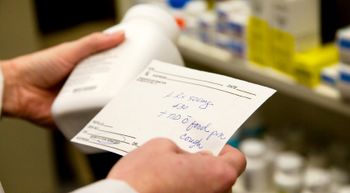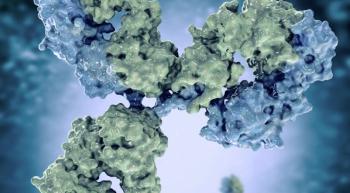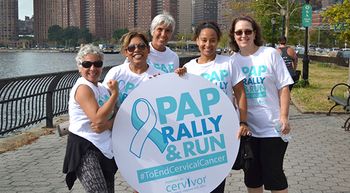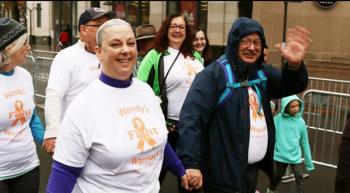
Knowing which kind of therapy works best can help in determining the ideal cancer care for patients.

Knowing which kind of therapy works best can help in determining the ideal cancer care for patients.

“There has been a rapid expansion in the use of checkpoint inhibition in many solid tumor types,” lead author Emily Hinchcliff, M.D.

At the inaugural Ovarian Cancer Heroes gala, held in New Orleans ahead of the 49th Society of Gynecologic Oncology Annual Meeting on Women’s Cancers, four individuals — a physician, nurse navigator and two patient-turned-advocates — were awarded for the contributions they have made to increase awareness and advance research and education for ovarian cancer.

Women with vulvar cancer who test positive for human papillomavirus (HPV) may have improved survival compared with HPV-negative patients, according to the results of a new study.

Findings from an early phase clinical trial that used a so-called “smart bomb” virus — which was altered to attack tumor cells rather than normal cells — appeared to show promise in this area.

Expert Leslie Schover, Ph.D., offers advice — that really works — on sex after cancer treatment.

Findings from a new study presented at the American College of Cardiology’s 67th Annual Scientific Session showed that adding two popular heart medications to the chemotherapy regimen may prevent heart damage from happening in these patients.

“There have been significant developments in our underpinnings for the development of pancreas cancer on both a molecular and genetic basis," said Eileen M. O'Reilly, M.D.

Nutritional change may be a potential strategy to improve symptom burden and inflammation in patients with MPNs, whohave increased inflammatory cytokines, which contribute to symptoms such as fatigue, night sweats and bone pain, as well as low cholesterol and weight loss related to nutritional deficiencies.

Survey finds quality of life and cost affect treatment decisions.

For more than 20 years, Barbara Abernathy, Ph.D., has been living with cancer and its aftermath. She was diagnosed with a rare type of blood cancer collectively known as myeloproliferative neoplasms (MPNs), which transitioned into acute myeloid leukemia. In 2013, she underwent a stem cell transplantation — a lifesaving gift from a young man in Germany.

Music has a way of deeply touching people’s emotions. Songs can stir memories that create joy, loss, happiness and heartbreak. Emotions like these are only part of the mix of feelings that accompany a lung cancer diagnosis. For Hildy Grossman, music has the ability to touch a person’s highest emotional and spiritual level. Because of this, music can be healing, comforting, therapeutic, a means of hope.

Researchers studied state-specific measures of disease incidence, adult smoking prevalence, radon zones, five-year survival, stage at diagnosis, five-year survival by stage at diagnosis, surgery as part of the first course of treatment and accredited lung cancer screening centers.

Many patients with lymphoma need treatment with both chemotherapy and radiation, but these treatments may be accompanied by significant late-term effects, according to a new study presented during the 2018 American Society of Clinical Oncology Cancer Survivorship Symposium.

She spoke of the power of one person and the difference it can make to a community, citing “our capacity to do what we can with what we’ve got; to become the leaders that we want to follow; to find the courage together to reach for what seems impossible, no matter who we are.”

Rick Boulay, a gynecologic oncologist and classically trained singer, will host a performance to raise money for cancer charities.

One out of three men with breast cancer does not receive adequate treatment, according to recent study findings published in Annals of Oncology.

Patients with multiple myeloma who are eligible for stem cell transplantation should still be considered for high-dose therapy (HDT) even in the novel agent era, according to the authors of a study recently published in the Journal of the American Medical Association Oncology.

Tailored survivorship care plans (SCPs) may be beneficial for survivors of head and neck cancer, according to recent research.

A recent study showed that patients with head and neck cancer who had greater depressive symptoms had shorter survival, higher rates of chemoradiation interruption and poorer treatment response. However, there are ways to manage these symptoms.

Adolescent cancer survivors can improve fitness, cognition and quality of life through increased physical activity, according to study findings presented ahead of the American Society of Clinical Oncology’s (ASCO) Cancer Survivorship Symposium.

Roswell Park Cancer Center researchers shed light on disease incidence among women.

“We are so grateful for all of the hair donations that we receive. However, with the Duchess being in the public eye, we hope that it means the message will be carried everywhere and we can help even more children with their hair loss."

A new study showed that a large percentage of patients do not receive standard-of-care.

A change Felder hopes to evoke is to get more cervical cancer survivors talking about the disease to help eliminate the stigma attached to having a below the belt cancer.

Radiation therapy alone reduced the number of cancer cells by 20 percent and the blueberry extract alone by 25 percent. But when combined, the blueberry extract and radiation therapy led to a 70 percent reduction in the number of human cervical cancer cells.

In recent years, the number of available gynecologic cancer clinical trials has gone down. The Foundation for Women's Cancer educates women about the trials that are available, and encourages them speak up publicly about the need for more.

Through its Centers of Excellence program, the MDS Foundation helps patients get appointments with leading experts from around the world.

Musella’s plan for the Brain Tumor Virtual Trial Registry is to get patients access to more drugs at a faster pace, while collecting treatment and efficacy information that can later be used by oncologists across the country to treat others.

Previous studies have found that caregivers of HCT recipients have more sleep and sexual issues, more depressive symptoms and more loneliness, as well as less social support and less spiritual well-being than HCT recipients.